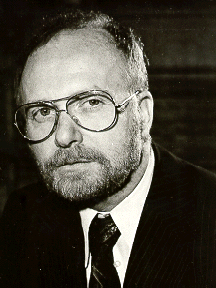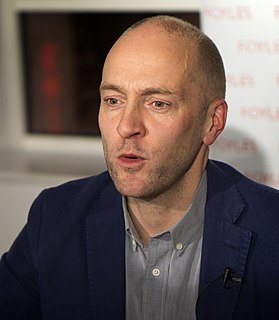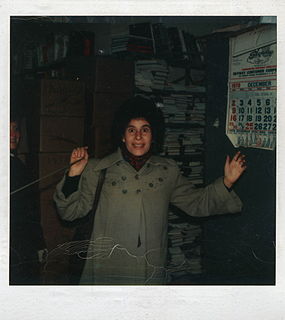A Quote by Stephen King
I hope you liked them, Reader; that they did for you what any good story should do--make you forget the real stuff weighing on your mind for a little while and take you away to a place you've never been. It's the most amiable sort of magic I know.
Related Quotes
The most difficult part of writing a book is not devising a plot which will captivate the reader. It's not developing characters the reader will have strong feelings for or against. It is not finding a setting which will take the reader to a place he or she as never been. It is not the research, whether in fiction or non-fiction. The most difficult task facing a writer is to find the voice in which to tell the story.
We've been led to believe that we have a very dumbed-down society - and that people are not thinking and are just sort of interested in escapism. However, if you look at this young generation, what I've been noticing is that they are extremely compassionate. They are extremely globally aware and interested, and they want to participate in making the world a better place - but they don't know how. As adults we are failing them by not providing them with any sort of guidance, any map, or any blueprint to do this stuff.
As I see it, a successful story of any kind should be almost like hypnosis: You fascinate the reader with your first sentence, draw them in further with your second sentence and have them in a mild trance by the third. Then, being careful not to wake them, you carry them away up the back alley of your narrative and when they are hopelessly lost within the story, having surrendered themselves to it, you do them terrible violence with a softball bag and then lead them whimpering to the exit on the last page. Believe me, they'll thank you for it.
She thinks she knows everything that goes on inside me, and she doesn’t know a thing. What did she want from me – to tell the truth all the time? To run around saying it did matter to me that I live in a world where you can grow old and be alone and have to get down on your hands and knees and beg for friends? A place where people just sort of forget about you because you get a little old and your mind’s a bit senile or silly? Did she think that didn’t bother me underneath?
I would not want to forget the first time I read The Lord of the Rings. I would never want to forget that! That was so magical to me, and that was a real eye-opening experience. I was probably 11 when I read that and already a reader, but I think that book really showed me how you can be transported and how your imagination can take you to a whole other place.
You don't know what someone's going to walk away from a movie with, but you hope it's something positive, but if nothing, you want them most basically to be entertained and engaged. That's your job. But you also hope to give them something to chew on or maybe some insight into the human existence, you hope a little bit. Not to sound too lofty.
You find there's no magic trick, sometimes in the shower, sometimes you're just lying in bed calm, sometimes you're just enjoying life and just have a notepad, it's never far away. Always have a notepad on you, because you never know what's going to happen, take a moment and write it down the minute that comes in your head. Even if you can't deal with it until later, I've had that experience where I was in a wedding party and I'm on stage, I'm like, "I hope I don't forget this, something just occurred to me."
The real questions are the ones that obtrude upon your consciousness whether you like it or not, the ones that make your mind start vibrating like a jackhammer, the ones that you "come to terms with" only to discover that they are still there. The real questions refuse to be placated. They barge into your life at the times when it seems most important for them to stay away. They are the questions asked most frequently and answered most inadequately, the ones that reveal their true natures slowly, reluctantly, most often against your will.
The desire to be liked is acceptable in real life but very problematic in fiction. Pleasantness is the enemy of good fiction. I try to write on the premise that no one is going to read my work. Because there's this terrible impulse to grovel before the reader, to make them like you, to write with the reader in mind in that way. It prevents you doing work that is ugly or upsetting or difficult. The temptation is to not be true to what you want to write and to be considerate or amusing instead. I'm always trying to fight against the impulse to make my readers like me.
I don't know your story or your dreams or the things that steal your sleep, but I know they matter. I hope you story is rich with characters, rich with friends and conversation. I hope you know some people who carry you, and I hope you have the honor of carrying them. I hope that there's beauty in your memories, and I hope it doesn't haunt you. And if it does, then I hope there is someone who will walk you through the night and remind you of the promise of the sunrise, that beauty keeps coming, that there are futures worth waiting and fighting for, and that you were made to dream.
If your subject is crime, then you know at least that you're going to have a real story. If your subject is the maturing of a college boy, you may never stumble across a story while you're telling that. But if your story is a college boy dead in his dorm room, you know there's a story in there, someplace.
I shall forget you presently, my dear, So make the most of this, your little day, Your little month, your little half a year, Ere I forget, or die, or move away, And we are done forever; by and by I shall forget you, as I said, but now, If you entreat me with your loveliest lie I will protest you with my favorite vow. I would indeed that love were longer-lived, And vows were not so brittle as they are, But so it is, and nature has contrived To struggle on without a break thus far,-- Whether or not we find what we are seeking Is idle, biologically speaking.


































